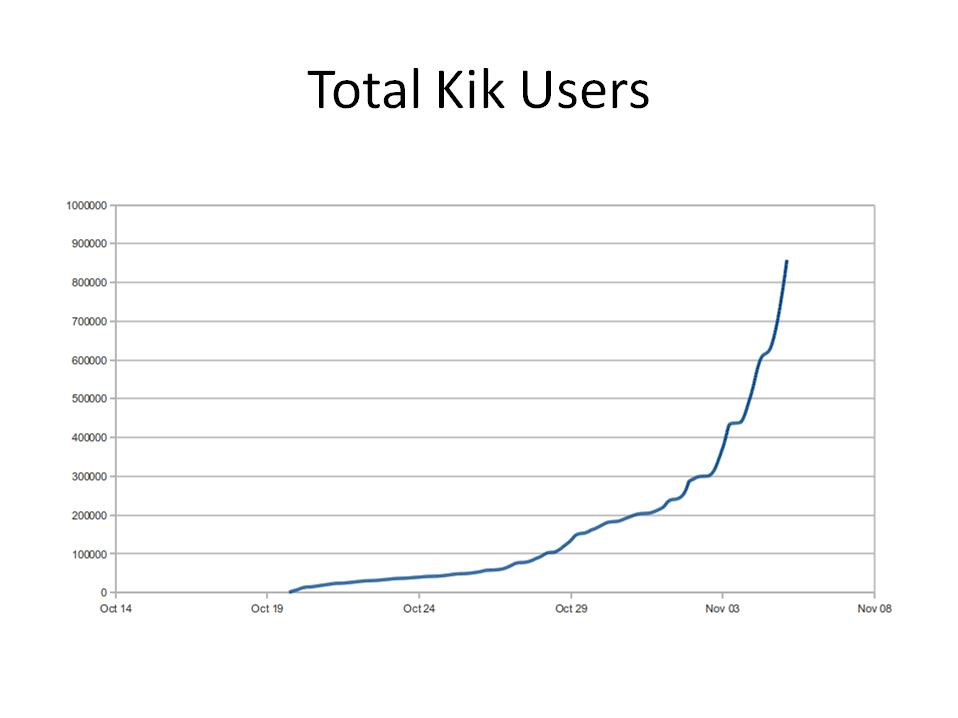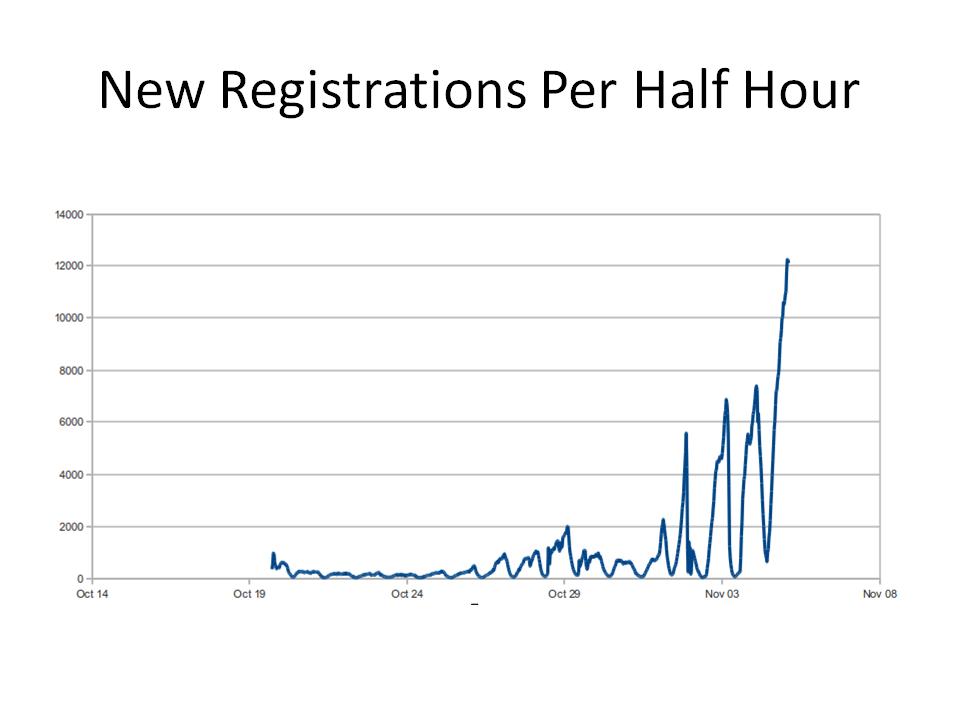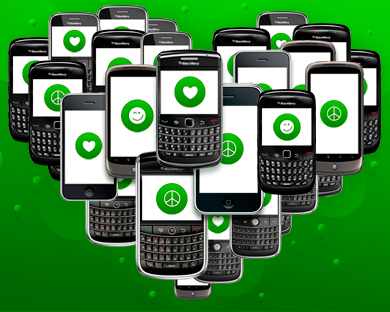ARTICLES:
A Conversation With Ted Livingston, CEO of Kik Messenger
“Kik is about having deep conversations with the people you care about,” says Ted Livingston, Founder and CEO of Kik. “That’s where the name came from: kicking a ball back and forth like a conversation.” We are sitting in a board room on the ground level of The Accelerator Centre, near the University of Waterloo campus, a sea of old and new world tech around us. But the predominant face of Waterloo tech is, of course, Research in Motion. Every building seems, in some way, to defer to RIM’s presence; its logo juts out from each unremarkable facade like a franchise prison, domineering, oppressive.
But RIM has also given life to an entrepreneurial spirit that seems out of place in the whitewashed university town. Livingston started the product that would be Kik in early 2009 with a music sharing product called Unsynced. He had recently joined Velocity, a university enterprise that encourages students to live together, work together and ultimately start things together. He found a few people to create with, began the coding for what would be a music-based instant messaging service, and soon realized that until he had the support of the various labels, he could create the back-end infrastructure for a very fast, reliable instant messaging service. And so Kik was born.
It started out earlier this year in beta form on the BlackBerry and iPhone, and soon after an Android beta was released. Limited to North America, the service included text messaging credits for users who didn’t have SMS plans, but the feature seemed gratuitous, mostly unused in a world of data plans and unlimited SMS. The service also used your phone number for registration, so it was very difficult to transfer over your contacts from one phone to another, especially if you had more than one number. In early October, the transition to 2.0 was made which changed the way Kik users registered: instead of phone numbers, users registered a username and password, as well as a phone number and email address. The username was for login purposes; the phone number and email was for scanning your address book to see if there were any matches in their database.

And that’s the real growth potential: your contact list populates itself with your own information, and though it may seem like an invasion of privacy, none of the information is stored on Kik’s servers. “One of our competitors actually does store that information on its servers,” says Livingston, though he declined to say which one. “We just scan it and use the hash to find matches.” Soon, you’ll be able to opt-out of these automatic matches and prevent the sometimes-annoying, ‘You may know _____’ messages that inevitably pop up when you open the app. “Kik is modeled after real world conversation. If someone walks up to you, you can’t accept or reject someone from talking to you.” If you think that the Accept/Reject model is a good way to ward off would-be stalkers, Kik will soon be implementing comprehensive privacy settings to combat that. “The Accept/Reject model doesn’t work very well in a big network. Say Eminem’s BBM Pin went public, he would still have to spend time sorting through all the requests. It makes the product almost unusable. Kik will prevent this from happening by having an opt-out rather than opt-in feature.”

By now you’ve likely heard about the intense growth that Kik has gone through in the last three weeks. “We went viral. From zero to a million users in 15 days.” Last week, they actually had to charter a plane to deliver new servers to their data centre in Iowa. “The product is very scalable; we built it to be able to support hundreds of thousands, or even millions, of users. But we just didn’t have the back-end computing power to keep up with it. We never expected growth to be this fast.” And it was fast. A true case of a viral social media success, Kik spread through Twitter, Facebook and good old word of mouth. Within days, people were asking, instead of your BBM pin, what is your Kik username?
And why not? The app implements the same “sent, delivered, read” functionality that BBM users lust after, as well as the speedy, reliable instant messaging that people need when having live conversation. But, compared to its competitors such as WhatsApp and PingChat!, Kik is low on features. “We want to take what we have now and make it perfect. We’re going to put our own spin on picture sharing and groups, but goal is to maintain the speed, simplicity and intimacy that makes Kik such a good product.”
“We have 70-, 80-year-old grandmothers signing up for Kik. We wanted to make it really simple to just sign up and use.” On November 10th, the app was featured on none other than The View, the venerable, female-dominated daytime talk show. “People love BBM,” says Livingston. “It’s what keeps people coming back. We want to give people the same experience across all the mobile platforms.”
Right now, a million users in, we can say that the growth is pretty much limitless. And for a bunch of kids from Waterloo, being overwhelmed doesn’t seem like much of a problem. The past few days have been hard for Livingston and the team. With excessive load putting constant strain on their servers, the service is sometimes unavailable for hours every day. “The difference between when Twitter goes down and when Kik goes down is pretty big,” he says. “With Twitter, you’re just shouting into the air, not sure if anyone can hear you. When Kik goes down, you’re basically cutting off someone’s conversation mid-way through.” Needless to say, they’re working on improving Kik’s reliability.
When asked about their plans for monetization, Livingston is reticent to talk about anything specific. The goal of implementing music sharing is still very much a reality, and he says that talks with the labels are almost finished. They are also talking about expanding Kik to the web, complete with social networking functionality. “Kik is about deep conversations,” he reiterates. Somehow, I think it’s also about young people with big ideas.
Kik is available for iPhone, BlackBerry and Android, and can be accessed via their mobile portal m.kik.com. To learn more about the app go to wtf.is.kik.com
Thanks so much to Ted Livingston, Tera Dargavel and the entire Kik team!
-
http://twitter.com/karimkanji Karim Kanji
-
http://www.thecellularguru.com CellGuru
-
Mike
-
Ric
-
http://www.thecellularguru.com GuruDaniel
-
http://www.thecellularguru.com GuruDaniel
-
Anonymous
-
http://www.thecellularguru.com/blog TheCellularGuru
-
http://www.thecellularguru.com/blog TheCellularGuru










